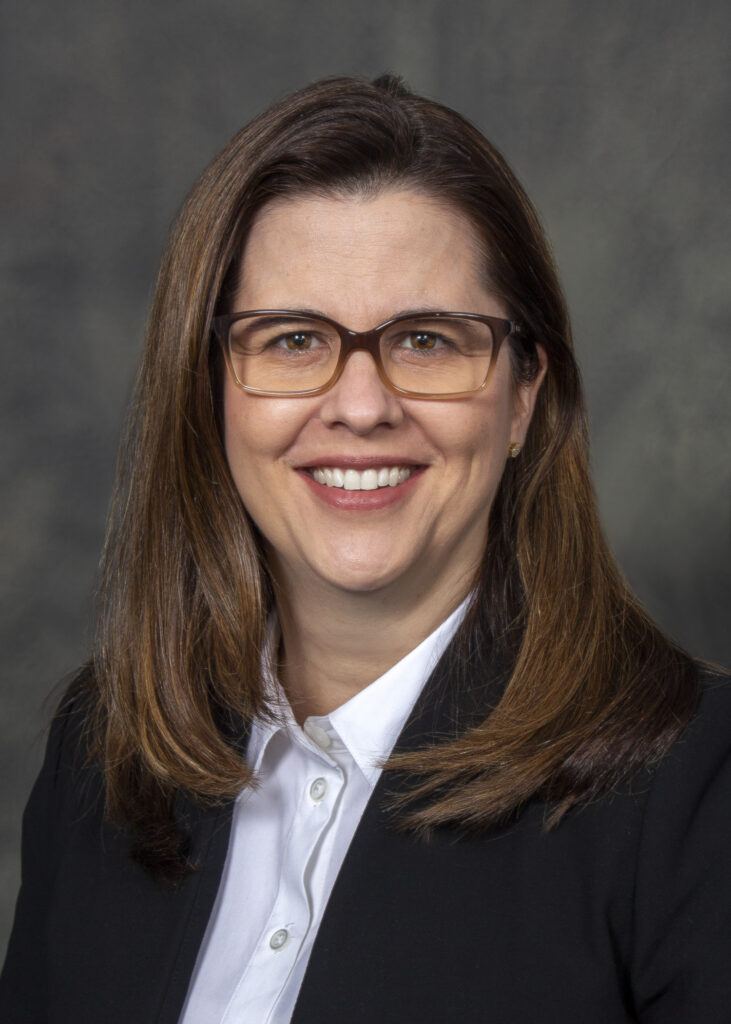Faculty member Livia Tenuta named editor of international ‘Caries Research’ journal5 min read
Ann Arbor, Mich., Sept. 25, 2024 – University of Michigan School of Dentistry faculty member Dr. Livia Tenuta has been named editor-in-chief of the international journal Caries Research.
The journal is a publication of the Organization for Caries Research, or ORCA, an international scientific organization based in Europe. The journal publishes epidemiological, clinical and laboratory studies in dental caries, fluorosis, erosion, and related dental diseases. It is published six times a year, with most readers accessing it online, but it is also available in print.

Dr. Tenuta is an Associate Professor in the Department of Cariology, Restorative Sciences and Endodontics at the dental school. She has longstanding connections with Caries Research, which has published 28 of her 96 peer-reviewed research papers. Her research, which has been published in more than 30 other journals as well, examines different methods of fluoride use in caries prevention and the impact of dietary sugars on the dental biofilm cariogenicity.
Tenuta has also served Caries Research and ORCA in other capacities. She has been a peer reviewer of manuscripts submitted to the journal since 2007, and served on ORCA’s Advisory Council from 2013-20 and as Membership Secretary and Webmaster from 2015-20.
Tenuta’s wider experience with academic publishing includes currently serving her third three-year term on the editorial board of the Journal of Dental Research, a publication of the International Association for Dental Research and the American Association for Dental, Oral and Craniofacial Research. For the last year she was Associate Editor of the International Journal of Paediatric Dentistry.
ORCA’s board considered five applicants for the editorship and nominated Tenuta, who was then approved by a vote of the organization’s members in July.
In her new role, Tenuta will lead a team of about a dozen Associate Editors from universities around the world, including the U.S., the United Kingdom, Belgium, the Netherlands, Lithuania, Switzerland, Brazil, Chile and Japan. The editors review 250-300 manuscripts submitted annually by international researchers to consider whether they present new, innovative and advanced caries research with scientifically rigorous methods. Editors, assisted by reviewers with expertise on the topic of the research, either accept or reject the manuscript, almost always asking for varying degrees of revision even for those that are published. The editor-in-chief makes the final decision about whether the paper is published. The process can take several months, a time frame Tenuta said she hopes to reduce during her tenure as editor.
As someone who has submitted many manuscripts to journals over the years of her research, Tenuta said she understands the importance of constructive and thorough reviews and feedback for the researcher. She has kept the first submission she made to Caries Research, when she was a PhD student; it was rejected but the feedback of reviewers provided a valuable learning experience for her. “I am firmly convinced that editors, in tandem with reviewers, bear the duty of propelling science forward by sharing their expertise with emerging researchers, thereby enabling them to refine their work,” she said in her application for the position. “(Constructive critique) empowers authors to enhance their research, whether through subsequent manuscript revisions or by informing their next study in the laboratory or clinic.”
Tenuta said it is important to link the science of caries research to better outcomes for patients. “My belief in the fundamental importance of robust science has been a cornerstone of my career since my formative years as a dental student, when I first developed a deep appreciation for the rigor and ethics integral to research,” she said. “The journal is already very well-regarded within the scientific community, but I envisage opportunities for us to amplify its impact at the vanguard of dental caries science. With dental caries ranking as the most common health condition globally, there is room to propel the science towards a future of better health for individuals and populations.”
Tenuta is the second U-M School of Dentistry faculty member holding a prominent role with ORCA. Dr. Margherita Fontana is currently president of the organization. Fontana is the Clifford Nelson Endowed Professor of Dentistry in the Department of Cariology, Restorative Sciences, and Endodontics.
Caries Research is published for ORCA by Karger, a publishing house in Health Sciences headquartered in Basel, Switzerland.
ORCA was founded in 1953 after Swiss and German dentists reviewed reports from the U.S. on the anti-caries effect of fluoridated drinking water and became interested in creating similar programs to impact tooth decay in Europe. More information is available on the ORCA website.
###
The University of Michigan School of Dentistry is one of the nation’s leading dental schools engaged in oral healthcare education, research, patient care and community service. General dental care clinics and specialty clinics providing advanced treatment enable the school to offer dental services and programs to patients throughout Michigan. Classroom and clinic instruction prepare future dentists, dental specialists and dental hygienists for practice in private offices, hospitals, academia and public agencies. Research seeks to discover and apply new knowledge that can help patients worldwide. For more information about the School of Dentistry, visit us on the Web at: www.dent.umich.edu. Contact: Lynn Monson, associate director of communications, at [email protected], or (734) 615-1971.
